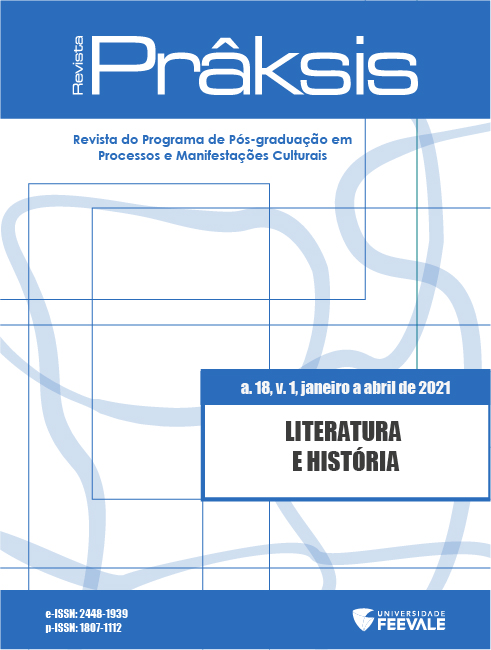O DISCURSO MEMORIALISTICO EM BAZAR PARANÁ, DE LUIS S. KRAUSZ
DOI:
https://doi.org/10.25112/rpr.v1i0.2429Abstract
O ato de rememorar pode ser doloroso, pois possibilita, muitas vezes, o reencontro com a dor, a perda o abandono. Objetos guardados e cuidados asseguram alguma permanência do passado diante dos olhos que o procuram, despertando sentimentos de toda ordem. A Literatura, paralelamente à História, dedica-se também à recuperação da memória, engendrando, dessa forma, reflexões sobre o passado. Nessa perspectiva, este artigo analisa discurso memorialístico no romance Bazar Paraná, de Luis S. Krausz, compreendendo a arte como procedimento, que busca no leitor um coautor na aventura leitora, pois ele deve desvendar o labirinto dialógico proposto na narrativa. Sem propriamente narrar os eventos históricos do passado, a obra centra-se na ação destes sobre as personagens, sobre sua subjetividade. Assim, a história se inscreve no texto literário a partir das observações do narrador quando criança, analisadas, em grandes golfadas de reflexão, por ele quando adulto. Reflexões entremeadas por inúmeras referências intertextuais, que revelam um narrador que também é um grande leitor.
Palavras-chave: Bazar Paraná. Intertextualidade. Mimese.
ABSTRACT
The act of remembering can be painful, as it often makes it possible to rediscover pain, loss and abandonment. Objects kept and cared for ensure some permanence of the past before the eyes that seek it, awakening feelings of all kinds. Literature, in addition to history, is also dedicated to the recovery of memory, thus generating reflections on the past. In this perspective, this article analyzes memorialistic discourse in the novel Bazar Paraná, by Luis S. Krausz, understanding art as a procedure, which seeks in the reader a co-author in the reading adventure, as he must unveil the dialogical labyrinth proposed in the narrative. Without properly narrating the historical events of the past, the work focuses on the latter's action on the characters, on their subjectivity. Thus, the story is inscribed in the literary text based on the narrator's observations as a child, analyzed, in great reflection, by him as an adult. Reflections interspersed with countless intertextual references, which reveal a narrator who is also a great reader.
Keywords: Bazar Paraná. Intertextuality. Mimesis.
Downloads
Published
How to Cite
Issue
Section
License
• Os autores mantêm os direitos autorais e concedem à revista o direito de primeira publicação com o trabalho licenciado sob a Licença Creative Commons - Attribution 4.0 International (CC BY 4.0).
• Os autores são estimulados a publicar e distribuir seu trabalho online (ex.: em repositórios institucionais ou na sua página pessoal), pois isso pode aumentar o impacto e a citação do trabalho publicado.


